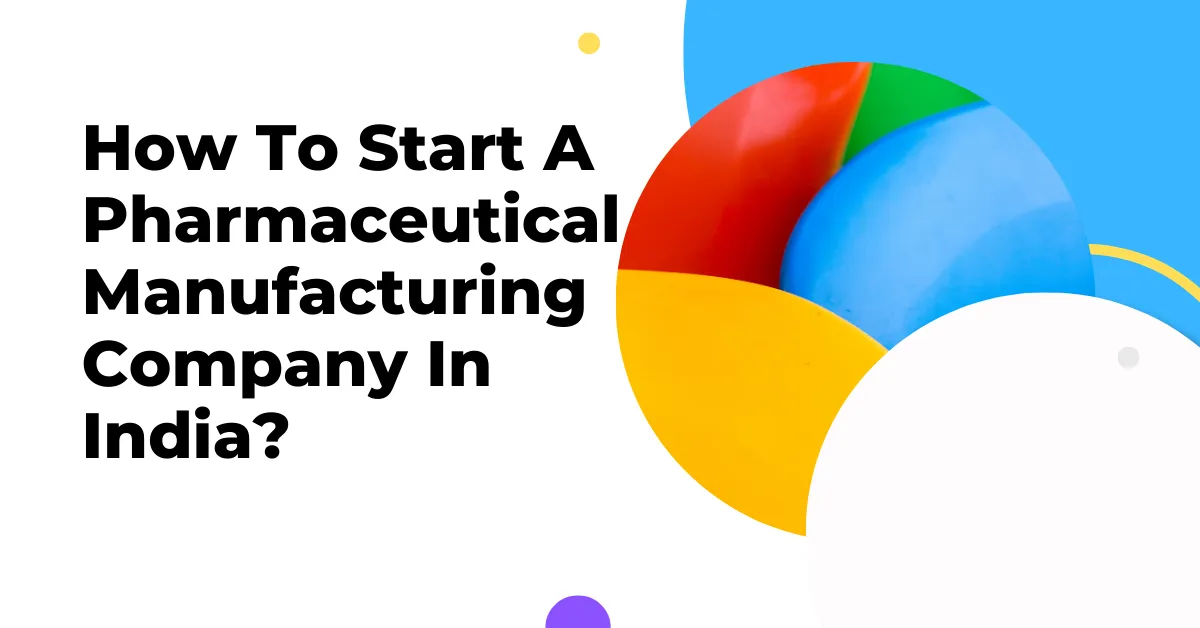
How To Start A Pharmaceutical Manufacturing Company In India?
1. How To Start A Pharmaceutical Company?
The pharmaceutical industry is one of the fastest-growing industries in the country. India is the third-largest generic drugs manufacturer in the world. Usually, these generic drugs account for 72% of the total production of drugs worldwide. The pandemic that hit the entire world in 2020 proved to be an eye-opener for the country to have inbound manufacturing facilities. Reliance on other countries for drugs and essential medicines is not a good idea, especially in times of hardship. The next decade is going to be a game-changer for the healthcare sector. Preventive healthcare is a top priority in the country, along with export-oriented businesses.
There are different manufacturing companies in this sector, such as branded manufacturers, OTC manufacturers, generic pharma, export-oriented, import-oriented, derma products manufacturers, and pharma distribution and supply companies.
2. Starting A Pharmaceutical Company
Especially since the pandemic, people are becoming more health-conscious and are constantly looking for ways to adopt preventive health care in their lifestyles. With exports being curbed, the Government of India started promoting the Make in India Movement more vigorously than before. The government is helping business owners who are willing to start manufacturing units across sectors through various subsidies. Small-scale manufacturing business ideas are encouraged and promoted by providing support and facilitating capital and infrastructure.
If you are a business owner or an entrepreneur who plans on starting a pharmaceutical manufacturing plant, this article can help you get started on these plans.
3. How To Start A Pharmaceutical Manufacturing Company?
Starting a manufacturing unit in the pharmaceutical sector involves setting up production, processing, packaging, storage, and logistics units. It is very important to have a strong understanding of the pharmaceutical sector to start and survive in this business.
1. Diligent market research
When starting a third-party pharma manufacturing company or a small-scale business, conducting thorough market research is very important. Understand the working of the healthcare and the pharmaceutical sector in India and its performance in recent years. Analyse the different kinds of players that exist in this sector. Decide on what kind of manufacturer you would like to be; a branded pharma company, over-the-counter drug business, generic pharma, export-oriented business, etc. There are many categories and sub-segments that you can explore. Additionally, you can explore options like Ayurvedic medicines, allopathy, homeopathy, Siddha, and Unani, and decide which one works for you and interests you. Conducting a benchmarking study and market research will guide you in the right direction when you start the business.
2. Understand the competition
Understanding your competitors is as important as setting up your business. Analyse the market and understand what your competitor’s product offerings are and their business models. Jot down the best practices of the industry to help you run your business better. Analyse how your competitors perform at each step of the value chain and how you can enter and capture a significant chunk of the market for yourself.
3. Develop a business plan
Once you have done your research and competitor analysis, it is critical to prepare a detailed business plan covering all aspects of setting up a medicine manufacturing company. The most important thing, to begin with, is the capital required to start the business. Although drug manufacturing is a capital-intensive business, you can begin small. Like every business, you will have fixed and operating expenses.
You can plan to either own or outsource your manufacturing unit. There are certain rules and regulations which have to be adhered to before setting up the manufacturing unit. For this, it is necessary to have permission certificates and validation from the respective state departments. Setting up and launching a small business can cost you up to Rs. 5 to 10 lacs depending upon the size and complexity of the business. It is very important to have your financial plan ready for at least the next five years, along with the business strategy. Hire consultants who can help develop a detailed business plan and growth strategy for the next five years.
4. Licensing & registration
Licensing is one of the crucial steps to focus on while setting up a pharmaceutical unit. This is one sector that is extremely sensitive and impacts people's lives. Therefore there is a huge responsibility on the part of the manufacturer. The number and type of licenses and registrations depend on the location of the plant and the type of business entity you are planning to register.
The common types of documentation you will need are drug manufacturing and distribution license, license for laboratory testing, NOC documents from respective departments, GST registration, and company registration. You will also need NOC and permissions from the State Pollution Control Board. If applicable, you might also need to apply for a clearance from the Drugs Controller General of India.
Opting to register your business under Micro, Small & Medium Enterprises (MSME) registration unlocks several benefits. It is advisable for budding entrepreneurs to opt for a provisional certificate. There are many benefits, exemptions, and opportunities available to you if you are an MSME player.
5. Set up the machinery & the plant
From the production of the drugs to when it reaches the customers, the entire supply chain needs different types of tools and products. To manufacture these drugs, you will need high-speed mixing machines, capsule and powder filling machines, loading and capping units, air compressors and filtration machines, and other equipment.
Another important aspect of setting up a plant is having qualified technicians who have deeper domain knowledge and understand the medicine manufacturing process. You will need to hire resources specifically for these processes to ensure quality control and assurance. The technicians and the other staff have to align with Good Manufacturing Process (GMP) norms.
Conclusion
The pharma and healthcare sector is a major contributor to the Indian economy and is growing very rapidly. This is one sector where demand always exists, and the sensitivity is high. People are becoming more aware of the importance of preventive healthcare, and a significant chunk of the population is moving towards allopathy. With the pandemic making it more evident, the pharma business is one of the most profitable manufacturing businesses to start. According to a recent economic survey, the pharmaceutical sector is expected to grow 300% in the next ten years.






